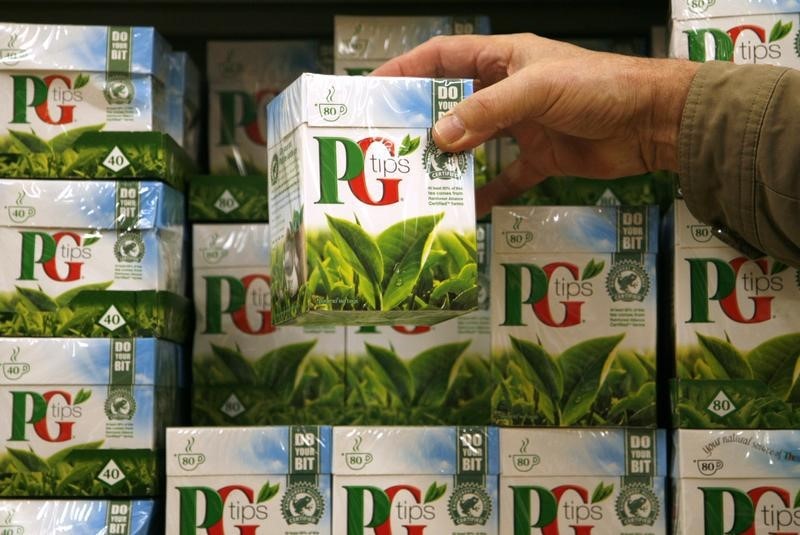By Martinne Geller
LONDON (Reuters) - Unilever (L:ULVR) (AS:UNc) reported better than expected first quarter sales and struck a positive tone on the rest of the year, citing brighter signs in major markets such as the United States, China and India.
The Anglo-Dutch maker of Dove soap, Lipton tea and Ben & Jerry's ice cream saw its shares jump more than 4 percent to a record high on Thursday after its first-quarter report showed progress after a tough 2014. Last year it was hammered by weakening emerging markets and currency devaluations.
"We are overall starting to see more tailwinds than headwinds," Chief Financial Officer Jean Marc Huet said.
Foreign exchange rates, for example, are expected to help 2015 sales by about 8 to 9 percent at current rates, he said, after reducing 2014 sales by 4.6 percent.
Huet told Reuters that Unilever's full-year sales growth would probably come in at the upper end of its prior stated goal of 2 to 4 percent.
In the first quarter, underlying sales rose 2.8 percent, excluding the impact of currency moves, acquisitions and disposals. Analysts on average were expecting a gain of 2.1 percent, according to a company-supplied poll.
The company cited a better than expected performance in China, saying that sales were stabilising, although at "much lower levels of growth than we've used to".
In the final three months of 2014, Unilever's sales in China fell 20 percent as retailers cut inventories to deal with a slowing economy. Huet said Unilever was now past the worst of the impact from that reduction in stock levels.
Unilever gets more than half its sales from emerging markets, and so was particularly hurt by the slowdown last year.
In North America, Unilever said more positive consumer sentiment was finally translating into low single-digit market growth helped by price increases.
However in Europe, the opposite remained, with volumes growing and deflation seen across the market.
Unilever's results contrasted with a weaker performance reported on Thursday by spirits maker Diageo (L:DGE), which still suffered from reduced inventory levels in Southeast Asia .
Given the tough backdrop, consumer goods giants Unilever, Nestle (VX:NESN) and Procter & Gamble (N:PG) have all been selling off underperforming or smaller brands to focus more on their leading products.
Huet declined to comment, in an interview, on Unilever's interest in acquiring any brands being sold by Procter & Gamble (N:PG).

Unilever shares were up 110 pence at 3044 pence in London at 1030 GMT.